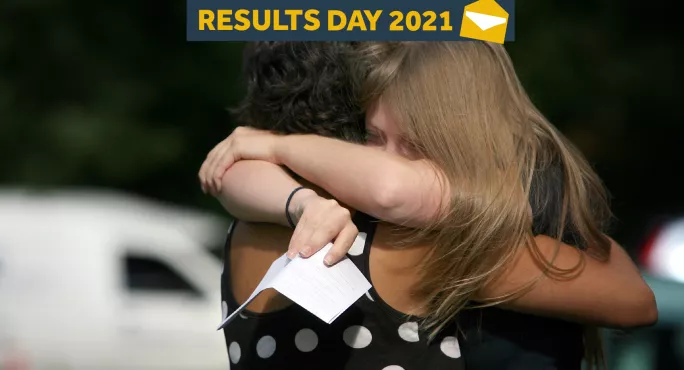GCSEs results day 2021: Hard to put exams ‘genie’ back

It will be hard for ministers to “put the genie back into the bottle” and go ahead with formal exams after two years of teacher assessments, a report has said.
And parents could get behind a campaign to scrap GCSE exams permanently if even more top grades are awarded this year, it has been suggested.
A-level and GCSE results days 2021: LIVE 10/8
A levels 2021: Third of teachers fear excess appeals
A levels 2021: Results at a glance
It comes ahead of GCSE results day on Thursday, when hundreds of thousands of students will find out their grades. This summer’s exams were cancelled for the second year in a row because of Covid-19.
Professor Alan Smithers, director of the Centre for Education and Employment Research (CEER) at the University of Buckingham, has suggested more top grades could be awarded to GCSE pupils this summer.
He said: “Plentiful top grades make pupils and parents happy, but they are less helpful for those using the grades for admission to the next stage of education or recruitment to employment.”
Professor Smithers added: “With another bumper crop of top GCSE grades, the future of exams at age 16 is likely to come under threat.
“There is already a pressure group to ditch them and if parents get a liking for plentiful top grades they may become involved.”
Last summer, the fiasco around grading led to thousands of A-level students having their results downgraded from school estimates by a controversial algorithm before Ofqual announced a U-turn.
The proportion of GCSE entries awarded top grades rose to a record high last year after grades were allowed to be based on teachers’ assessments, if they were higher than the moderated grades given.
This year, teachers in England submitted their decisions on pupils’ grades after drawing on a range of evidence, including mock exams, coursework, and in-class assessments using questions by exam boards.
On Tuesday, the proportion of A-level entries awarded top grades reached an all-time high after exams were cancelled, with 44.8 per cent achieving an A or above.
Professor Smithers has suggested that teachers have “put more emphasis on rewarding” students for their efforts, “rather than on the information the qualifications carry into future life.”
The cancellation of the summer exams for a second year in a row has prompted some education leaders and politicians to call on ministers to consider reforming GCSEs in the post-Covid years.
Professor Smithers added: “Schools and teachers do not like GCSE exams because they are judged on their pupils’ results in league tables and inspectors’ reports. With teacher assessment, they are in control.
“Independent schools do not like GCSE exams either because, with the great majority of their pupils staying on until 18, they interrupt the smooth progression to A level.
“Many educationists do not want exams at age 16 because they believe they distort the curriculum, are harmful to adolescent well-being, and are biased against the disadvantaged. It’ll be quite a task for the government to put the genie back into the bottle.”
Last year, 26.2 per cent of UK GCSE entries were awarded one of the three top grades, compared to 20.8 per cent in 2019, the last year that exams were sat before the pandemic.
Girls also pulled further ahead than boys amid the surge in top grades awarded at GCSE last summer.
The gap between boys and girls achieving at least a 7 - which is broadly the equivalent of an A grade - increased from 6.5 percentage points in 2019 to eight percentage points in 2020.
“Such is the extent of girls’ lead over boys that one wonders if they just might be cleverer,” the report from the CEER at the University of Buckingham says.
Ahead of GCSE results day, Professor Smithers said: “Girls have long been ahead in school work, but the tendency has been to explain away their superior performance.
“When they did better in the 11+, it was said that they matured earlier, when they leapt ahead in GCSEs it was said that it was because they worked harder, and now with teacher assessment the impression is that they are favoured by the teachers.
“Why can’t we accept it is just that they are cleverer?”
Register with Tes and you can read two free articles every month plus you'll have access to our range of award-winning newsletters.
topics in this article



